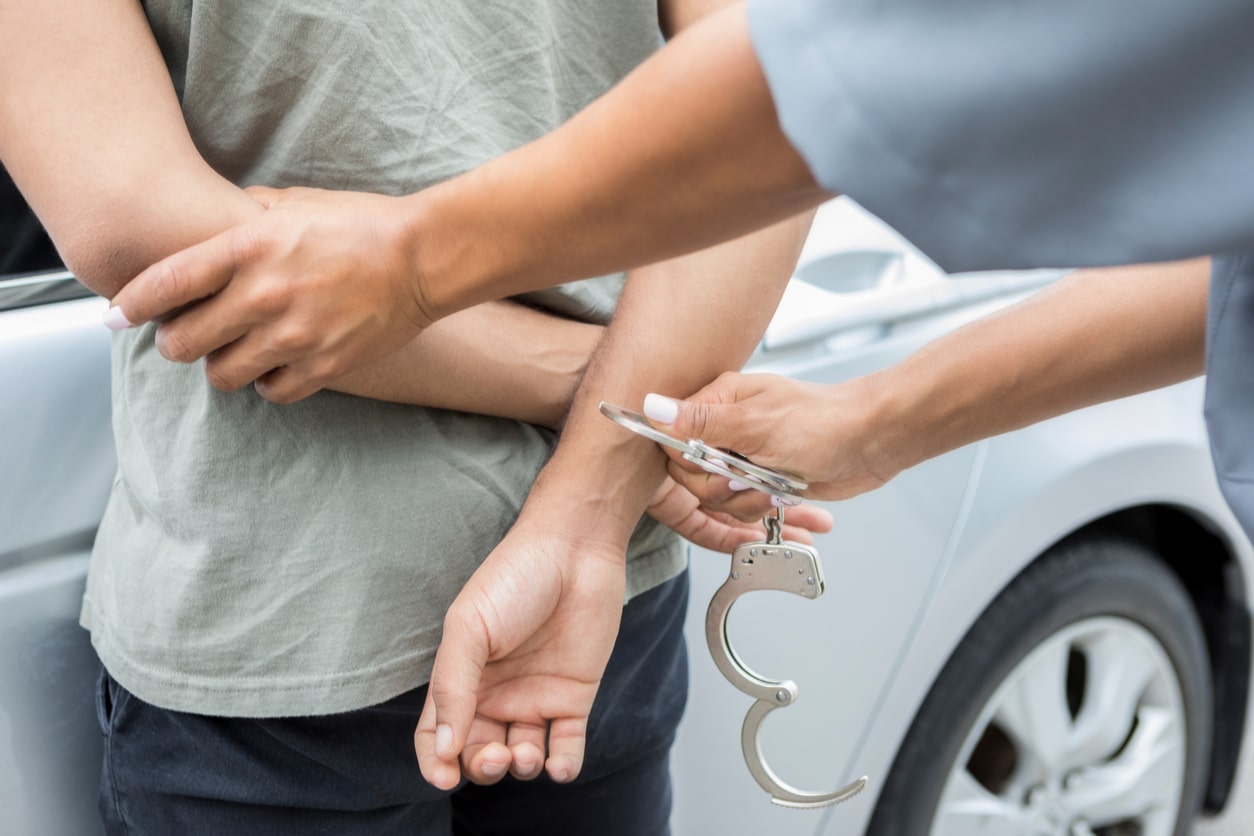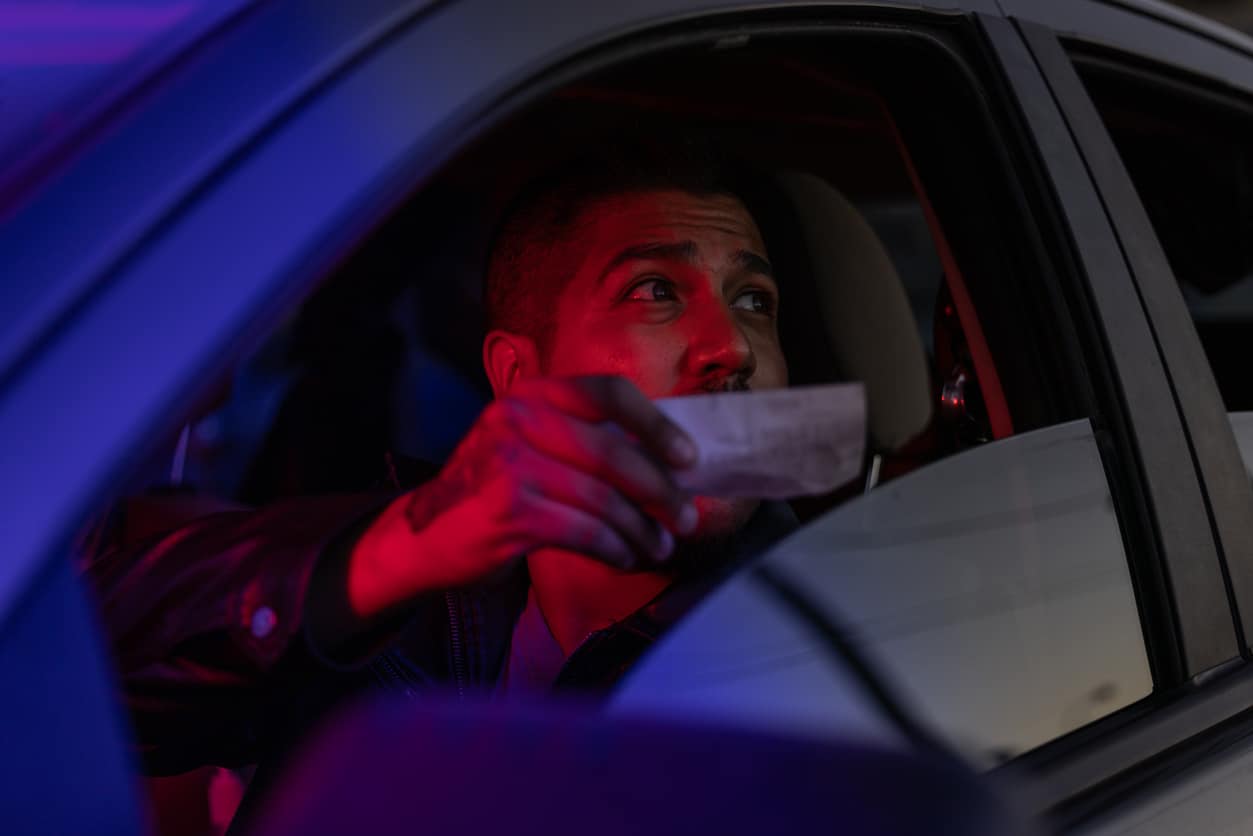A conviction for driving under the influence (DUI) or driving while intoxicated (DWI) can have…

Legal Advice for First-Time DUI Offenders
Driving while intoxicated (DWI), also known as driving under the influence (DUI) is a serious offense in Missouri and Kansas. Even if your case does not result in a conviction, it can impact nearly all aspects of your life, including your finances, job, and relationships. A conviction can result in fines, driver’s license suspension, jail time, increased insurance premiums, and lost employment opportunities. If you are facing your first DWI or DUI charge, you might not know where to turn. A DWI attorney with experience in Missouri and Kansas cases can help you understand what to expect and defend against the state’s allegations.
What Is DWI/DUI?
Missouri and Kansas have different definitions of DWI/DUI, but they are similar in many important ways. Missouri uses the term “DWI,” while Kansas calls it “DUI.”
Definition of the Offense

The basic elements of DWI/DUI are the same in both states. A person commits the offense if they either:
- Drive a motor vehicle while impaired by alcohol or drugs; or
- Have a blood alcohol concentration (BAC) of at least 0.08 percent while driving or soon after driving.
Police can determine a person’s BAC by testing a sample of their breath or blood. Breath testing is more common since it does not require a medical professional with training in drawing blood samples.
Prosecutors in Kansas and Missouri have two main ways to prove that a defendant is guilty of DWI/DUI:
- Produce evidence showing that their BAC was at or above the “legal limit” of 0.08 percent around the time of their arrest; or
- Produce other evidence, such as eyewitness testimony from the arresting officer, to establish that they were too impaired by drugs or alcohol to operate a vehicle safely.
Breath Testing
Some states have “implied consent” laws that require drivers suspected of DUI to submit to breath testing to determine their BAC. The idea is that, by driving on a state’s public roads, they have consented to a breath test. The police officer must have a reasonable suspicion that they are guilty of DUI/DWI.
Missouri describes itself as an implied consent state but does not impose criminal penalties for refusal. Kansas does not have an implied consent law. Refusing a breath test, however, is not free of consequences. Both states will suspend your driver’s license if you refuse and your refusal can be used against you in the criminal proceedings.
Blood Testing
Blood testing is much more invasive than breath testing. Police need a warrant signed by a judge to collect a blood sample from someone who does not consent.
What Are the Penalties for a First DWI/DUI Conviction?
DWI/DUI can have two types of penalties:
- Criminal penalties: Fines, jail time, probation, and/or community service
- Administrative penalties: Driver’s license suspension
Criminal Penalties
A first-time DWI/DUI offense is a class B misdemeanor in both Kansas and Missouri. The penalties in Kansas may include:
- Forty-eight hours to six months imprisonment;
- A fine of $750 to $1,000; and
- Up to one hundred hours of community service.
The following penalties may result from a first DWI conviction in Missouri:
- Up to six months in jail with no mandatory minimum jail sentence; and
- A maximum fine of $500.
Driver’s License Suspension
In Kansas, a first DUI conviction will result in a one-year suspension. After one year, you must equip your vehicle with an ignition interlock device (IID) for two years. This device tests your BAC and prevents the vehicle from starting if it is too high.
If a Missouri driver has no DWI convictions from the previous five years, a conviction will result in a thirty-day suspension. Afterward, they must equip an IID in their vehicle for sixty days.
Refusal to Submit to Breath Testing
Refusal to participate in a breath test can result in the same period of driver’s license suspension and IID installation as a first-time DUI conviction. Note that a criminal conviction is not necessary for this to occur.
What Are Some DWI/DUI Defense Strategies?
The best way to challenge a first-time DWI/DUI charge depends on the specific facts and circumstances. The following are possible ways to present a defense:
Was the Traffic Stop or Arrest Lawful?
Police must have reasonable suspicion of an offense, such as speeding, running a red light, or DUI, to pull your vehicle over. If the stop was unlawful, the court could throw the entire case out.
Did the Police Administer the BAC Test Properly?
Breathalyzers are complicated devices that require careful maintenance. Police must provide documents to show that they have kept the device used in your case in good working order. Without that evidence, you can question the reliability of the test results. Prosecutors can still use other evidence to show that you were impaired, but it will be harder without the BAC evidence.
Did the Police Have Legal Authority to Take a Blood Sample?
Police must have your consent or a warrant to take a blood sample. If they did not have either, you can challenge the lawfulness of the blood draw.
Did the Police Conduct the Field Sobriety Tests Correctly?
Field sobriety tests are not a reliable way to prove intoxication, but police may use them to justify arresting someone for DWI/DUI. Prosecutors may try to use your poor performance on the tests as evidence of impairment. They must show that the officer carefully explained the tests and confirmed that you understood the instructions. You can challenge the state’s evidence based on circumstances like:
- An injury that prevented you from doing the tests correctly;
- Rainy or icy weather conditions;
- Uneven surfaces; or
- Poor lighting.
Can I Get Probation Instead of Jail Time?
Yes, probation may be possible for a first DWI/DUI offense. Other possibilities include:
- A diversion program that lets you avoid a conviction altogether
- Pleading guilty to a lesser offense, which keeps DWI/DUI off your record
Contact an Experienced DWI/DUI Lawyer to Learn More
DWI and DUI are serious charges that can significantly impact your life whether you are found guilty or not. Sloan Law Office offers skilled, compassionate legal services to guide you through the legal process in the Kansas City area. Our team of defense attorneys can help you understand your rights and fight the state’s charges.
Contact Sloan Law today to schedule a confidential and free consultation to see how we can help you.




This Post Has 0 Comments